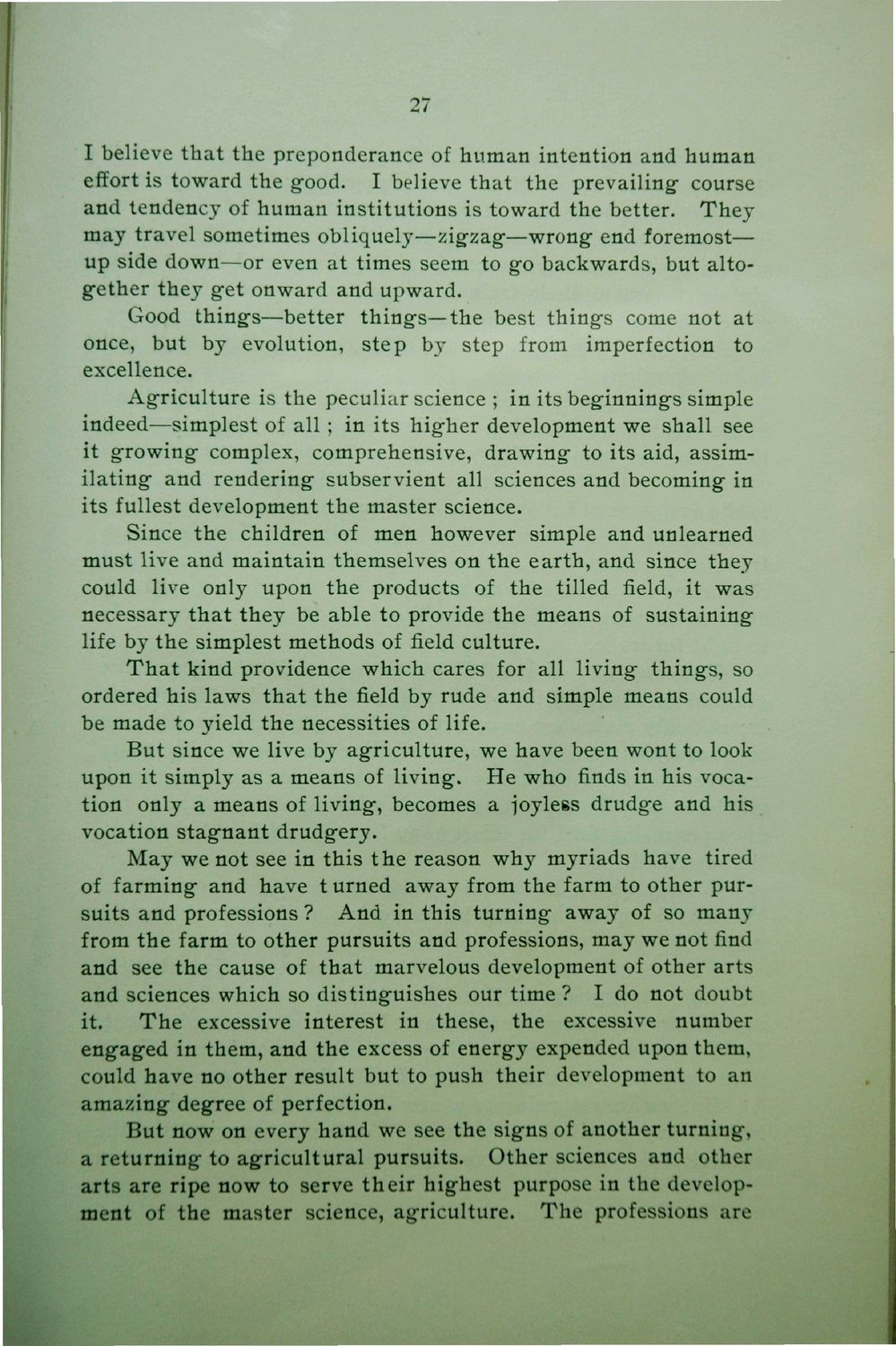| |
| |
Caption: Dedication - Ag Building
This is a reduced-resolution page image for fast online browsing.

EXTRACTED TEXT FROM PAGE:
27 I believe that the preponderance of human intention and human effort is toward the good. I believe that the prevailing course and tendency of human institutions is toward the better. They may travel sometimes obliquely—zigzag—wrong end foremost— up Side down—or even at times seem to go backwards, but altogether they get onward and upward. Good things—better things—the best things come not at once, but by evolution, step by step from imperfection to excellence. Agriculture is the peculiar science ; in its beginnings simple indeed—simplest of a l l ; in its higher development we shall see it growing complex, comprehensive, drawing to its aid, assimilating and rendering subservient all sciences and becoming in its fullest development the master science. Since the children of men however simple and unlearned must live and maintain themselves on the earth, and since they could live only upon the products of the tilled field, it was necessary that they be able to provide the means of sustaining life by the simplest methods of field culture. T h a t kind providence which cares for all living things, so ordered his laws that the field by rude and simple means could be made to yield the necessities of life. But since we live by agriculture, we have been wont to look upon it simply as a means of living. He who finds in his vocation only a means of living, becomes a joyless drudge and his vocation stagnant drudgery. May we not see in this the reason why myriads have tired of farming and have t urned away from the farm to other pursuits and professions ? And in this turning away of so many from the farm to other pursuits and professions, may we not find and see the cause of that marvelous development of other arts and sciences which so distinguishes our time ? I do not doubt it. The excessive interest in these, the excessive number engaged in them, and the excess of energy expended upon them, could have no other result but to push their development to an amazing degree of perfection. But now on every hand we see the signs of another turning, a returning to agricultural pursuits. Other sciences and other arts are ripe now to serve their highest purpose in the development of the master science, agriculture. The professions are
| |